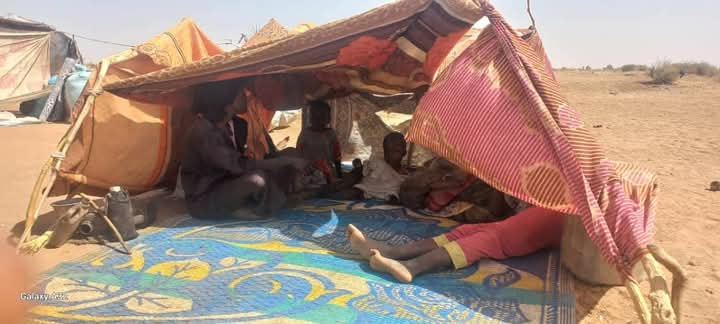Maternal Health in Darfur’s Displacement Camps: MSF Reports Rising Deaths & New Community Response

In camps across South Darfur, MSF reports alarmingly high maternal mortality and introduces community‑based clinics to improve access.
MSF’s return to South Darfur since early 2024 has shed light on a catastrophic maternal health crisis in camps and remote areas. This week’s update focuses on recent data and interventions being deployed to address it.
Between January and mid‑August 2024, MSF‑supported facilities in South Darfur recorded 114 maternal deaths, largely due to sepsis—the leading cause in that context. During the same period, 48 newborns died from sepsis, and over one in five babies infected did not survive .
In camp settings, especially in and around Zamzam, overcrowding, inadequate sanitation, and blocked aid deliveries have exacerbated maternal and neonatal risks. Zamzam camp’s population has surged, and RC restrictions have disrupted nutritional and medical services .
MSF teams provided 12,600 ante‑ and post‑natal consultations and assisted 4,330 deliveries (normal and complicated) in South Darfur between January and August 2024 . Tragically, 78% of maternal deaths occurred within 24 hours of admission, reflecting delays in reaching care and critical condition on arrival .
Voices from the Field
“A pregnant patient from a rural area waited two days to collect the money needed to get care… she died from a preventable infection,” said Maria Fix, MSF medical team leader in South Darfur .
Data Snapshot
● 114 maternal deaths (Jan–mid‑Aug 2024)
● 48 newborn sepsis deaths (Jan–Jun 2024) → ~20% fatality rate among infected newborns
● 78% of maternal deaths occurred within 24 hours of hospital arrival
● Over 1,700 consultations daily across MSF‑supported sites
● Malnutrition screening in camps: 32.5% global acute malnutrition; 8.1% severe acute malnutrition among children under 2 .
Innovative Response in Camps:
Since early 2025, MSF and the Sudanese Family Planning Association have implemented a community‑based midwife model in Nyala, surrounding displacement camps, Kass and Jebel Marra regions. Local midwives offer 24/7 sexual and reproductive health services—including post‑rape care, antenatal consultations, deliveries, and free family planning—closer to where women live .
This community model has led to a sharp increase in survivors seeking help: cases of sexual violence reported rose from 31 in October to 120 the following month, suggesting increasing confidence in localized services .
MSF also continues rehabilitation of Nyala Teaching Hospital and mobile outreach to camps, though bed occupancy reached 328% in maternity and 207% in paediatrics at peak in October 2024, overwhelming capacity and raising infection risks .
Recommended Resources
MSF: Sudan: Pregnant women and children dying in shocking numbers (report)
MSF: Driven to oblivion: conflict toll on mothers and children in South Darfur
AP News article: Sepsis and malnutrition